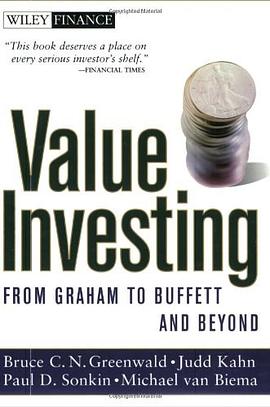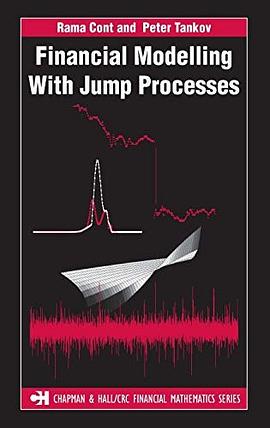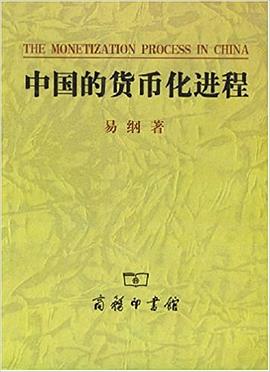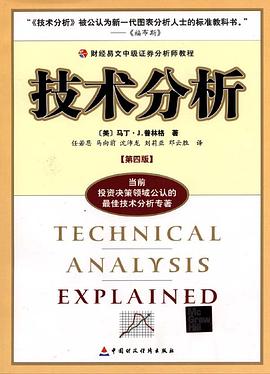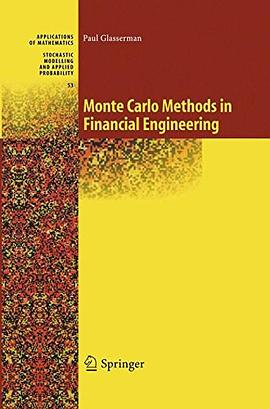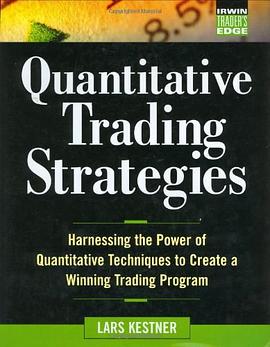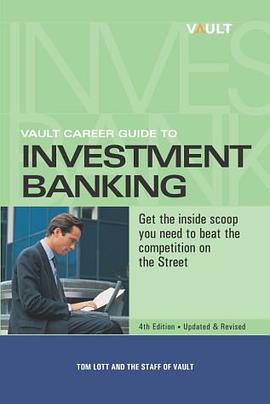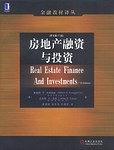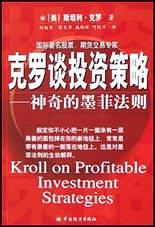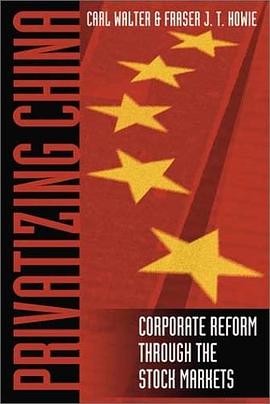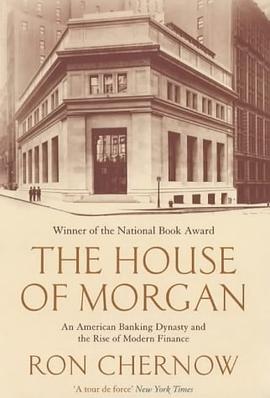

具体描述
Billy Beane, general manager of MLB's Oakland A's and protagonist of Michael Lewis's Moneyball, had a problem: how to win in the Major Leagues with a budget that's smaller than that of nearly every other team. Conventional wisdom long held that big name, highly athletic hitters and young pitchers with rocket arms were the ticket to success. But Beane and his staff, buoyed by massive amounts of carefully interpreted statistical data, believed that wins could be had by more affordable methods such as hitters with high on-base percentage and pitchers who get lots of ground outs. Given this information and a tight budget, Beane defied tradition and his own scouting department to build winning teams of young affordable players and inexpensive castoff veterans.
Lewis was in the room with the A's top management as they spent the summer of 2002 adding and subtracting players and he provides outstanding play-by-play. In the June player draft, Beane acquired nearly every prospect he coveted (few of whom were coveted by other teams) and at the July trading deadline he engaged in a tense battle of nerves to acquire a lefty reliever. Besides being one of the most insider accounts ever written about baseball, Moneyball is populated with fascinating characters. We meet Jeremy Brown, an overweight college catcher who most teams project to be a 15th round draft pick (Beane takes him in the first). Sidearm pitcher Chad Bradford is plucked from the White Sox triple-A club to be a key set-up man and catcher Scott Hatteberg is rebuilt as a first baseman. But the most interesting character is Beane himself. A speedy athletic can't-miss prospect who somehow missed, Beane reinvents himself as a front-office guru, relying on players completely unlike, say, Billy Beane. Lewis, one of the top nonfiction writers of his era (Liar's Poker, The New New Thing), offers highly accessible explanations of baseball stats and his roadmap of Beane's economic approach makes Moneyball an appealing reading experience for business people and sports fans alike.
作者简介
Michael Lewis is the author of the bestsellers Liar's Poker and The New New Thing. He lives in Berkeley, California, with his wife, Tabitha Soren, and their two daughters.
目录信息
读后感
在收藏夹里存了好久了,前几天手欠买了下来……虽然对大陆译者把握棒球题材的能力早有心理准备,可到手之后还是大吃一惊——文中有大量的错译、漏译(而且漏的往往是能展现作者语言风格的促狭话),以及同一个词前后译法不同的情况。 不推荐购买法律出版社这一版(不知道早年...
评分台风天里窝在客厅读书,尽管耳畔仍能听到狂风呼啸而过的音响,心中却仍不时出现王健民站在投手丘上威风八面的样子。几天前传来的消息,王健民列入洋基的伤兵名单,这个球季可能没再上场主投的机会。所留下几乎是洋基队里先发投手群中最佳的投球内容纪录,洋基队算是挖到了个宝...
评分台风天里窝在客厅读书,尽管耳畔仍能听到狂风呼啸而过的音响,心中却仍不时出现王健民站在投手丘上威风八面的样子。几天前传来的消息,王健民列入洋基的伤兵名单,这个球季可能没再上场主投的机会。所留下几乎是洋基队里先发投手群中最佳的投球内容纪录,洋基队算是挖到了个宝...
评分这本书发现、提出、解答了一个问题:只拥有纽约洋基队三分之一预算的奥克兰运动家队,为什么能取得比洋基队更好的成绩? 抽象点来说:在棒球的自由市场中,什么战胜了金钱,什么没有? 具体到经济学上,要赢一场比赛,一支队伍需要支付的边际成本是多少刀? 最后的答案大家都...
用户评价
对于我这样一位对体育数据分析并不十分精通的读者来说,“金钱之球”这本书的阅读体验无疑是一次惊喜。我原本以为会充斥着晦涩难懂的统计公式和图表,但事实证明,作者的叙事能力和对人物情感的捕捉,将这一切都变得生动有趣。书中的核心在于,如何通过客观的数据来评估球员的真实价值,而不是仅仅依赖球探的经验和直觉。我特别喜欢书中对那些被低估的球员的描写,他们或许没有耀眼的外表,没有惊人的速度,但他们在关键时刻能够稳定地为球队贡献价值——比如更高的上垒率,更少的失误。这种“以结果为导向”的分析方式,让我看到了体育竞技背后隐藏的理性一面。这种理念对于我理解商业决策、团队管理等领域,都具有极强的借鉴意义。它提醒我,在做任何重要决定时,都应该跳出固有的思维定势,去寻找那些被忽视的、能够真正带来效益的关键指标。阅读这本书的过程,就像是在学习一门全新的语言,它用数据说话,用事实证明,传统并不总是最优解,创新和理性分析才是通往成功的捷径。我能够感受到作者在写作过程中所投入的巨大热情,以及他对这场“数据革命”的深刻洞察。
评分我一直对那些挑战既定规则,并因此获得成功的案例充满好奇,而“金钱之球”无疑是其中最令人着迷的一个。这本书不仅仅是关于棒球,它更像是一场关于“如何打破常规,找到新的游戏规则”的精彩案例分析。作者以一种近乎侦探小说的叙事手法,深入剖析了奥克兰运动家队经理比利·比恩如何运用统计学,颠覆了棒球界长期以来依赖直觉和经验的选人、用人模式。我原以为体育竞技的成功更多地依赖于天赋和汗水,但这本书让我看到了隐藏在这些之下的,是更为理性、更为数据驱动的决策过程。那些被其他球队用高薪挖走的明星球员,在“金钱之球”的理论下,可能并不是最划算的投资。反而是一些被低估、被忽视的球员,因为他们身上蕴含着被忽视的价值——比如更高的上垒率,或者更稳定的防守表现——最终成为了球队制胜的关键。这种“非主流”的成功故事,对于任何一个身处竞争环境中的人来说,都具有极强的启发意义。它告诉我们,不要害怕与众不同,不要被传统思维束缚,只要你能找到独特的视角和方法,即使资源有限,也能创造出令人惊叹的成就。阅读这本书的过程,就像是在解开一个复杂的谜题,每一页都充满了惊喜和顿悟,让我对接下来的生活和工作有了新的思考方向。
评分作为一名资深的棒球迷,我对“金钱之球”这个概念已经耳闻许久,但直到最近才真正有时间沉下心来阅读这本书。这本书不仅仅是一部关于棒球的书,它更像是一次对传统思维模式的颠覆,一次关于数据分析在看似非理性领域应用的深刻探讨。作者通过讲述奥克兰运动家队如何在低预算的情况下,凭借对球员数据的精细化分析,挑战那些拥有雄厚财力的豪门球队,最终取得辉煌成就的故事,让我对“棒球”这项运动有了全新的认识。我一直以为棒球的魅力在于那些精彩的击球、漂亮的接杀,以及球员之间无声的默契,但“金钱之球”让我看到了隐藏在这些表象之下的冰冷而精准的计算。那些被传统球探忽视,甚至被视为“怪胎”的球员,在作者和球队经理比利的眼中,却变成了通往胜利的密码。书中对“上垒率”等数据重要性的强调,让我反思了自己在观看比赛时,有多少时候被华丽的表面所迷惑,而忽略了那些真正能带来胜利的关键要素。这种视角上的转变,让我对未来的每一场比赛都充满了期待,仿佛我拥有了一双能够穿透数据迷雾的眼睛,能够更深层次地理解比赛的进程和球队的策略。这本书的叙述方式也非常吸引人,它没有枯燥的数据堆砌,而是通过生动的人物故事和紧张的比赛情节,将复杂的统计学原理巧妙地融入其中,让即便是对数据不太感冒的读者也能乐在其中,并且学到很多。
评分拿到“金钱之球”这本书,我抱着一种既期待又略带怀疑的心情。我一直觉得棒球是一项充满人文关怀和戏剧性的运动,而“数据分析”听起来似乎与之格格不入。然而,这本书彻底改变了我的看法。作者以一种引人入胜的方式,讲述了奥克兰运动家队如何在预算极其有限的情况下,通过应用一套基于统计学理论的球员评估体系,与那些财大气粗的对手们展开竞争,并屡屡获胜的传奇故事。书中对于“上垒率”的深入探讨,以及如何将其与得分能力联系起来,简直是让我大开眼界。我过去看棒球,更多的是关注那些全垒打、盗垒等激动人心的瞬间,但这本书让我看到了,那些被忽视的“上垒”行为,才是真正能够累积优势,最终赢得比赛的基石。这种从“看热闹”到“看门道”的转变,让我对这项运动的理解上升到了一个新的高度。更重要的是,这本书所传递的理念,早已超越了棒球本身。它教会我们,在任何领域,只要你敢于质疑传统,勇于探索新的方法,并且能够精准地利用数据来指导决策,就有可能在激烈的竞争中找到属于自己的突围之路。这种颠覆性的思维方式,让我对未来充满了希望,也更加坚定了不断学习和探索的决心。
评分: G848.197.12/L675
评分趣味横生,虽然还是大空头比较直白。即使是基于主观和经验的策略有了冷静的统计也会变得更加可靠。
评分唬唬不怎么懂棒球的人还有点用。。但实际的棒球运作没有刘易斯说得那么简单。Billy Beane怎么可能让刘易斯把自己成功的秘诀全部公之于众呢。。
评分如果不是讲predictive analytics,实在是听不下去,对棒球实在无爱。但是prediction牛逼。在某保险公司找工广告上面看见hiring manager(没弄错的话是MIT sloan的运筹女博士)写的,跟freakonomics, super crunchers并列的。另外两本都看过了,所以也把这本看了。的确是这个领域从业人员需要看看的呵呵。
评分比电影好看太多!
相关图书
本站所有内容均为互联网搜索引擎提供的公开搜索信息,本站不存储任何数据与内容,任何内容与数据均与本站无关,如有需要请联系相关搜索引擎包括但不限于百度,google,bing,sogou 等
© 2026 book.wenda123.org All Rights Reserved. 图书目录大全 版权所有


